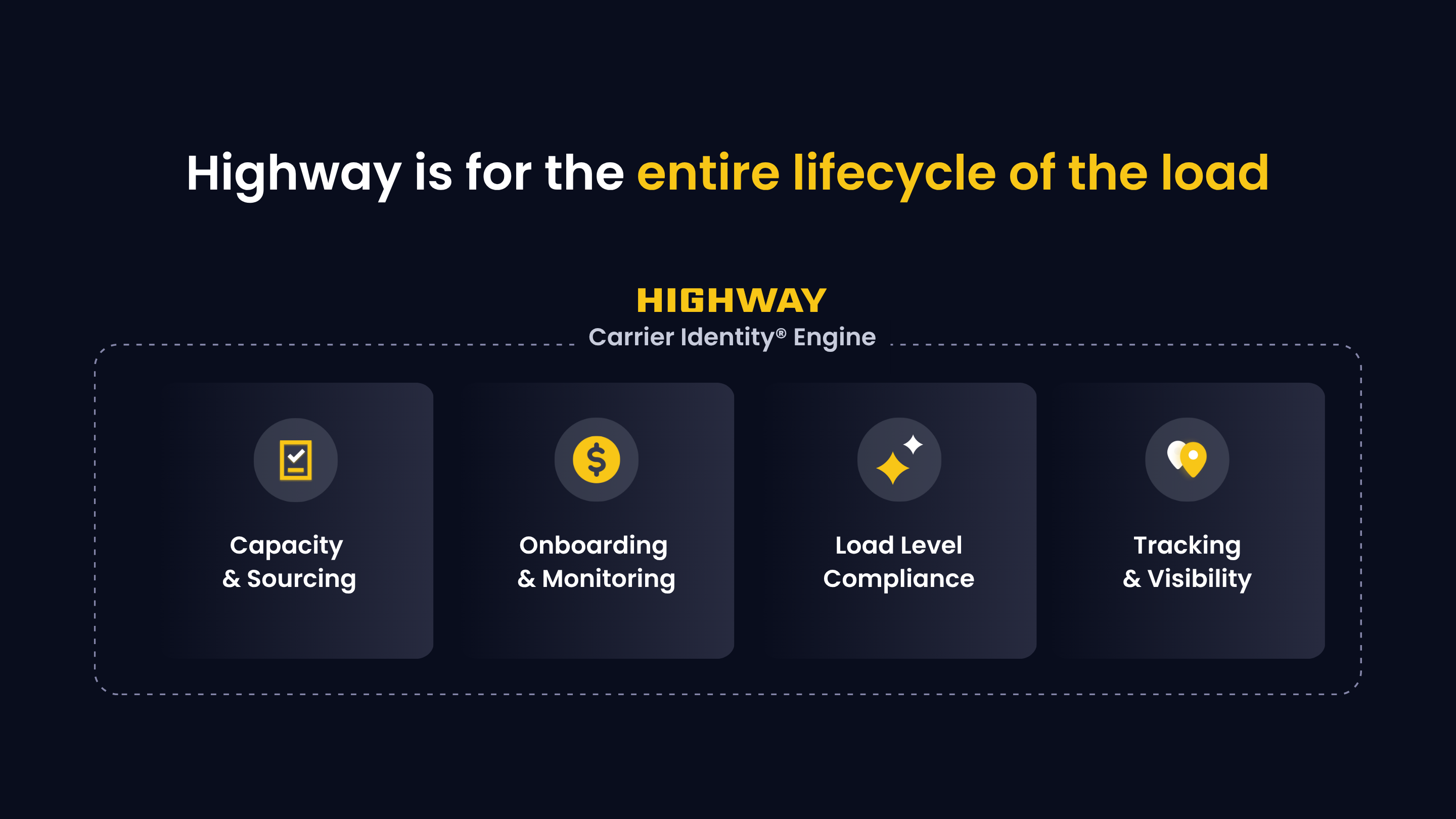Fraud isn’t a one-off event, it’s a constant threat hidden in everyday operations. Fraudsters thrive in the dark, exploiting weak spots where brokers have little visibility or control. The most strategic brokers are shining a light on the areas where fraud takes root.
Two schemes are driving the biggest losses for brokers right now: compromised inboxes and sold MCs. Both come back to the same problem—identity.
Where Fraud Slips In
These schemes don’t happen overnight. In just the first nine months of 2025, Highway has already blocked 1,453,129 fraudulent email attempts—a 59% increase that surpasses the 914,719 attempts blocked during all of 2024. Bad actors study your workflows, test your reps, and look for cracks. Some even run clean loads to build trust before striking. Fraudsters are systematic, patient, and opportunistic.
Compromised Inboxes
Carriers’ inboxes are under constant attack from phishing emails. In Q3 2025, Highway blocked over 605,000 fraudulent email attempts (a 22% increase quarter over quarter). This shows that carrier inboxes remain one of the most targeted and vulnerable entry points for freight fraud.
Fraudsters are slipping into inboxes to silently observe and track communications. Once inside the inbox, fraudsters often monitor activity until they come across a thread with load details or an attached rate confirmation - an opportunity to impersonate, divert payment and steal the load.
If you are still sending PDFs or links for rate confirmations through your email, you're at risk of this type of scheme.
“Bad actors are targeting Gmail, Microsoft, and Yahoo accounts that lack multi-factor authentication (MFA). If you have not set up two-factor authentication in your email, we highly recommend you do that now.” - Michael Grace, VP of Customer Risk Management
Sold MCs
Ownership changes are another blind spot. The transition can appear legitimate on paper, making it difficult to detect without continuous monitoring of behavioral, registration, and insurance changes.
Bad actors target carriers that are trying to sell their MC over Facebook or Marketplaces and often these transactions happen overnight. By gaining access to a carrier’s company details, the bad actor uses that credibility to book and disappear with your loads.
Ownership-change abuse remains one of the most persistent fraud tactics in the market, reinforcing the need for continuous monitoring, alert response, and strict adherence to verification protocols. Watch for unusual patterns and investigate all change-of-ownership alerts. If something seems suspicious, require the carrier to re-verify through Highway before booking.
How Highway Protects Brokers From The Latest Freight Fraud Threats
Brokers must have a comprehensive approach to fraud prevention. Fraud doesn’t just happen at onboarding it can creep in at booking, tender, dispatch, transit or even delivery. That’s why Highway protects the entire load lifecycle, making sure handoff is secure and every move is verified.
How Highway’s suite of solutions work together to protect you from tender to delivery:
- Secure Onboarding: Ensuring you know exactly who you are working with from the very beginning.
- Continuous Compliance: From booking to delivery, you'll receive real-time alerts for changes in carrier status, and high-risk behavior flags.
- Real-Time Visibility: With fully automated, ELD-powered tracking and geofencing, you gain true visibility of the load.
- Trusted Capacity: With identity-verified, fully insured, ELD-connected carriers so every load moves with confidence and accountability.

Why It Matters
Fraud will keep evolving, but Highway gives brokers the infrastructure to protect every load and build trust at scale. By embedding identity, compliance, and verification into every step of the load lifecycle, Highway gives brokers the confidence to stay ahead of threats and build a trusted, secure network.
See how leading brokers are staying ahead of fraud with Highway. Schedule a demo with the Highway team today.







